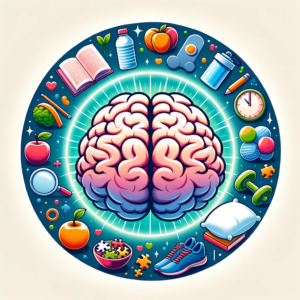Introduction
Schizophrenia is a multifaceted mental disorder that affects millions of people worldwide. Its impact on individuals’ thoughts, emotions, and behavior can be profound, leading to significant challenges in their daily lives. In this blog post, we will delve into the intricacies of schizophrenia, shedding light on its symptoms, potential causes, available treatments, and the importance of support for those affected.
Decoding Schizophrenia: A Closer Look at Symptoms
- Exploring hallucinations: Understanding the sensory experiences that seem real but aren’t, such as hearing voices or seeing things that others don’t perceive.
- Unraveling delusions: Examining the false beliefs that individuals with schizophrenia may hold, often involving paranoia or special powers.
- Disorganized thinking and speech: Understanding the challenges in coherent communication, where thoughts become fragmented, and speech lacks logical flow.
- Emotional expression and social withdrawal: Exploring the diminished emotional responsiveness and the tendency to withdraw from social interactions.
The Complex Puzzle: Potential Causes of Schizophrenia
- Genetic factors: Examining the role of genetics and heredity in predisposing individuals to schizophrenia.
- Environmental influences: Discuss how various environmental factors, such as prenatal stress or exposure to certain viruses, might contribute to the development of schizophrenia.
- Neurochemical imbalances: Exploring the impact of neurotransmitter dysregulation on the manifestation of schizophrenia symptoms.
Navigating Treatment Options
- Medications: Discuss the role of antipsychotic medications in managing symptoms and preventing relapse.
- Psychotherapy: Highlighting the importance of therapy in improving coping skills, communication, and social functioning.
- Multidisciplinary support: Emphasizing the value of a comprehensive approach involving a team of healthcare professionals, family support, and community resources.
Empowering Lives: Living with Schizophrenia
- Challenging misconceptions: Addressing common myths and stereotypes associated with schizophrenia, promoting understanding and empathy.
- Personal stories of resilience: Sharing inspiring accounts of individuals who have successfully managed their symptoms and pursued meaningful lives.
- Self-care and support: Encouraging self-care strategies, fostering social connections, and accessing support networks for individuals with schizophrenia and their loved ones.
Conclusion
Schizophrenia remains a complex and multifaceted mental disorder, but individuals affected by it can lead fulfilling lives with increased understanding, empathy, and comprehensive support. By dispelling misconceptions and raising awareness, we can foster a more inclusive and supportive society for those with schizophrenia.


